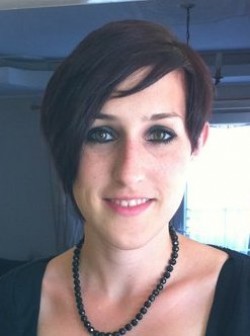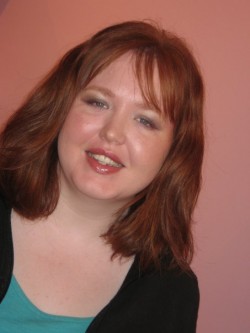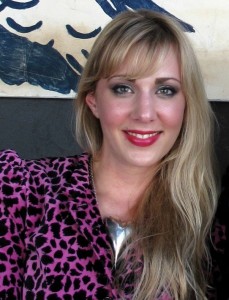Current Team:
Dr Charlotte Frost (Founder/Director) is a contemporary art historian and experimental scholar of the digital humanities. She holds an interdisciplinary position with School of Creative Media and the English Department at the City University of Hong Kong. Her work focuses on the history of internet art, online art critical communities, publishing, literary materiality and emerging digital literacies. She conducts practice-based research into the future of arts and humanities scholarship as a producer of open, hybrid and participatory platforms. She is the founder of Arts Future a set of projects exploring new approaches to publishing and education in the arts. In 2013 Arts Future Book published it’s first twice-blind-peer-reviewed, multi-format publication Interactive Art and Embodiment: The Implicit Body by Nathaniel Stern. This was followed by an experimental journal-style article ‘Is Art History Too Bookish’ and artwork ‘#arthistory’ exploring the materiality of art historical literature by Frost. Her own forthcoming book Art Criticism Online: A History (Gylphi Limited: 2016) will provide a history of online art critical networks from BSS to YouTube and is accompanied by a web-based archive of collaborative research into online art discussion communities. This research was supported by post-doctoral research fellowships at the Center for 21st Century Studies at the University of Wisconsin-Milwaukee (2011-12) and HUMlab at Umeå University, Sweden (2010).
Dr Anna Tarrant:
 Anna is a social scientist with a background in Human Geography. She is currently working as a Leverhulme Trust Early Career Research Fellow at the University of Leeds. Her research interests broadly include;
Anna is a social scientist with a background in Human Geography. She is currently working as a Leverhulme Trust Early Career Research Fellow at the University of Leeds. Her research interests broadly include;
- Men and masculinities,
- Grandparenting (including their roles in informal and formal exchanges of care),
- Gender relations and feminist theory,
- Sociologies of family, relationality and kinship,
- Realist methodologies in qualitative research and
- Qualitative secondary analysis.
She is currently leading a research project called ‘Men, poverty and lifetimes of care’ that qualitatively explores how men negotiate their care responsibilities in low-income localities over time. She has conducted qualitative secondary analysis of two datasets from the Timescales archive, to direct the research aims and questions of this research. Alongside her research, Anna is also interested in new modes of academic publishing and the use of social media for extending academic networks and knowledge beyond the academy. She developed these interest in her role as the managing Editor for PhD2Published in 2011-12.
Previous Managing Editors:
Dr. Linda Levitt:
“I am very happy to be here, in a welcoming and supportive digital space. For the past two years or so, I’ve routinely spent time visiting and chatting with like-minded folk on Twitter, Facebook, blogs, and elsewhere. With this opportunity to work with Charlotte Frost on PhD2Published, I can continue and expand those conversations. I hope I can share the enthusiasm and wisdom that others have shared with me.
I’m a communication and media studies scholar and earned my doctorate at the University of South Florida. My dissertation was a critical study of Hollywood Forever Cemetery in Los Angeles, and how this unique commemorative space is used for cultural events, performances, and celebrations. That project took my research interests in various directions, but all of my work focuses on the intersection of media and cultural memory.
Here at PhD2Published, my journey involves finding and following the right steps to publishing a book. I have been flirting with it for awhile, and the book is much more complicated to me than the journal article or book chapter. The book still feels like a mystery, and that mysteriousness only makes it more intimidating. I’m determined to keep that intimidation at bay. I hope that my process here can help other scholars find the path to their publishing goals, I whatever fora or venues are most fitting. I am interested in encouraging and cheering on supportive voices and spaces. We’ll draw on the wisdom and experience of writers, editors, and publishers. We’ll ask and answer questions, search for solutions, and throw our arms up in the air, sometimes in frustration, but with hope, ultimately in celebration.”
Dr. Sarah-Louise Quinnell (January – September 2011)
 Here’s how she described herself:
Here’s how she described herself:
“I am a social scientist, more specifically a Development Geographer, whose work focuses on the international politics of the environment and development.
I gained my PhD from the Geography Department at King’s College London in 2010. My research, funded through an ESRC/NERC collaborative studentship, examined the role of capacity-development initiatives in the implementation of multi-lateral environmental agreements, for a plain English summary of my research look here.
It was during my doctoral research that I began to consider how the internet and social media could be used in the research process. I had noticed that a number of international organisations had used interactive message-boards and forums as a means of communicating with interested stakeholders. With that in mind I developed my own virtual research environment which included a web site which was used to both collect data as well as a tool for promoting me and my own research. The site ran for 2 years and was invaluable to a time and cash strapped post-graduate researcher. The relative newness of this area of research saw me present on the use of social media for researchers and researcher development at the Royal Geographical Society Annual Conference in London in 2007.
Since completing my PhD I am now focusing on publishing the results of my thesis, developing post-doc ideas and following up my work on social media and the research process through the development of online and interactive tutorials for PhD and post-doc researchers interested in using social media in their research which are being delivered through the King’s College London Researcher Development Programme. You can find out more about my interests in social media on my website & in this short interview I did with Tristram Hooley.
When not working I can be found on the dance floor where I am training to become a Ballroom and Latin American dance teacher. I can also be found on twitter discussing everything from geo-politics to fake tan!
Why am I here …
I took over the Editorship of PhD2Published in January 2011 and I am looking to both build on and expand the issues and information previously highlighted on the site through my own publishing journey. I am looking to secure an academic position and publications; along with successful grant applications and conference presentations are key components to securing that position. As such I am looking to engage with all these issues during my Editorship of PhD2Published. I don’t come here as an expert, rather I approach my Editorship as an early career researcher with a lot of questions looking to find the answers, surely if I don’t know then other people won’t know either? So as I set out on my journey I hope by asking these questions, admitting what I don’t know and what I would like to know that I can generate content useful to all, irrespective of discipline.
The academic world is changing we are now constantly being ranked and graded on performance and ‘impact’ how does this change the way scholars view publishing or the communication of their research? Can we still publish for pleasure or for the advancement of knowledge or are we in a ‘publish or perish culture’ where the issue of publishing has become inextricably linked to career development strategies where publishing the ‘right’ paper / book etc in the ‘right’ journal or with the ‘right’ publisher become the most important? Who decides what is ‘right’ is it us as researchers or is it the establishment that many of us look to become part of? How is social media changing the way we present our work and what impact will the e-age having on publishing and academia in general? As I document my publishing journey on this site I hope to engage with many of these questions, hopefully providing answers, but at the very least stimulating debate.
Journals still represent the bulk of published academic material. In the 2008 RAE Journal submissions for the Geography and Environmental Studies sub-panel represented nearly 90% of the total submissions and as such this is where I start my journey. My examiners emphasised the need for me to be published in ‘good’ journals but what is a good journal, how do I choose where to be published and what does that mean for both the presentation of my work and me as an academic? Over the next few months I will chart my progress towards getting my first few papers published as well as providing advice from more established academics on paper writing and publication, dealing with revisions and rejection etc.
My aim is to continue to develop this site and maintain its dynamic, user driven nature thus I am looking forward to hearing from those of you using the site in order to maintain its relevance.”
You can now read Sarah-Louise’s final post to find out about everything she achieved while editing this resource!








Adrian said on April 5, 2012
I would like to subscribe to this website BY EMAIL but I cannot find this option.
Is it available?